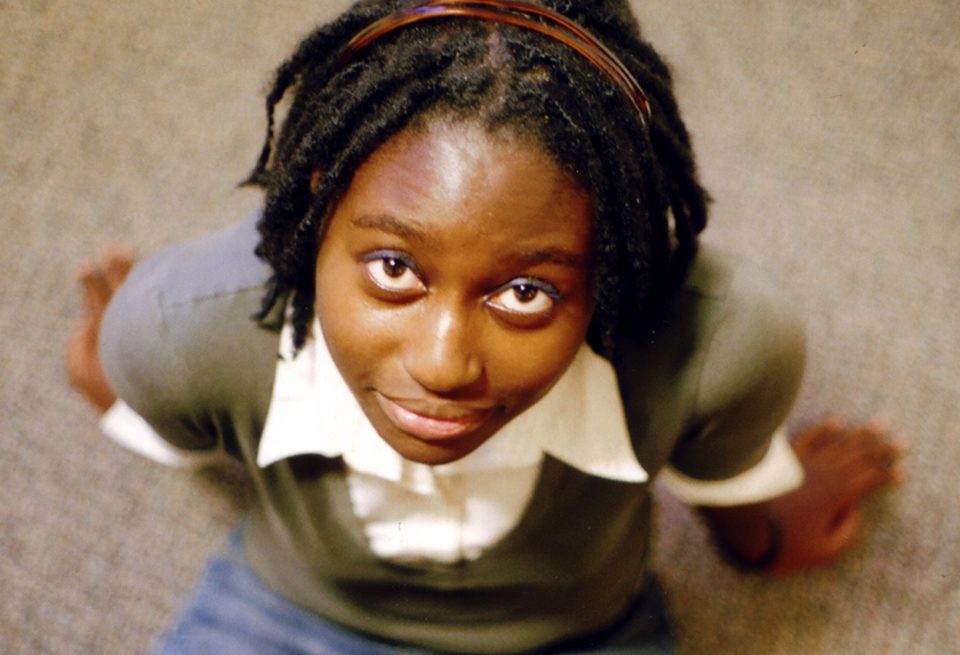Helen Oyeyemi was born in Nigeria in 1984 and moved to London with her family when she was four. Her first novel, The Icarus Girl, was written while she was studying for her A-levels. With its mixture of Nigerian legend and the everyday life of the London suburbs, it tells the story of a young girl growing up between two cultures, while coping with the worries and strains of adolescence. On its publication, The Icarus Girl was an international success and Oyeyemi found herself shortlisted for the 2006 Commonwealth Writers’ Prize.
Oyeyemi’s second novel, The Opposite House, published this May, takes its title from a poem by Emily Dickinson. Sophisticated and intelligently written, the novel also explores the theme of migration in its mixture of Cuban folklore and contemporary English life. Helen Oyeyemi is also the author of two plays, Juniper’s Whitening and Victimese.
You were still at school when you wrote The Icarus Girl — did you find its success overwhelming?
I think the fact of being at university and also writing something else (The Opposite House, plays, and short stories) helped me to stay in the frame of mind where I kept getting lost in other thoughts rather than focussing on what was happening back then. I think I would’ve been terrified if I’d thought about all the countries The Icarus Girl was published in.
How long did it take you to write, was it something you had been thinking about writing for a long time beforehand?
The Icarus Girl took seven months. I didn’t have a plan, I just knew my two main characters, Jess and TillyTilly, and I knew what happened at the end. I’d written the end by the time I’d gotten to the middle of the story and I just kept pushing that last page back with more and more words.
It was lovely to see the quotation from Emily Dickinson at the start of The Opposite House; can you tell me something about your influences as a writer?
I find Emily Dickinson both a gag and a liberation. I always go running to her when I want to describe something important because when she’s on point she really knows what’s what — but at the same time she’s so bleak and grand and severe that you have to dare yourself to crawl inside her big words and impossible images and curl up against the heart of what she’s saying. All things I aspire to — as a writer I want to be affecting. Which is why I like Poe, H D Everett, M R James, Stephen King, Marquez, Daniil Kharms, Margaret Atwood, Steinbeck, the Brontes, Zbigniew Herbert, the list goes on. I think the Gothic elevates the experience of reading, but it’s not the only form of fiction that can do it. Bad Gothic writing can be so numbing.
The Opposite House revolves around a Cuban family who move to London, and have firm, but complex, Nigerian roots — where did the inspiration for this novel come from?
I don’t feel like Maja’s family have firm Nigerian roots; they don’t know anything about Nigeria and tend to reference it out as “Africa”. I wanted to write a bit about the ideas I came across when I found and started reading a book of Cuban legends in Foyles – the struggle to find a foothold in terms of identity that Cuban slaves experienced in a society that was hostile to them, but needed their labour. But I was also very interested in the experience of the hysteric, of a specifically female inner turmoil that I kept bumping into in those very same Cuban legends.
Can you tell me something about the research you carried out when writing it?
I had a lot of photographic portraits of Havana to hand, since I didn’t get to go to Cuba whilst writing it. I had a background of Santeria worship music and read myself to the point of near-insanity on the Yoruba gods and their Cuban counterparts and Santeria, the fusion of Catholicism and the Yoruba religion.
Can you tell me something about your work as a playwright? How does it differ from writing novels?
The plays were an experiment with having a more immediate result to what I’d written, and seeing the audience react. Then I got to reading Lorca and Tennessee Williams and Sarah Kane’s Blasted and I see what plays can be when they aren’t experiments and they’re so amazing that I don’t think I’ll be writing anymore plays…
What are you working on at the moment?
Another novel! Very exciting. I’m so wild about it (I wonder how long that’ll last….) I think it’ll be set partly in Dover and partly at Cambridge. I don’t dare say anything more for fear of spoiling it.
Gráinne Lyons





